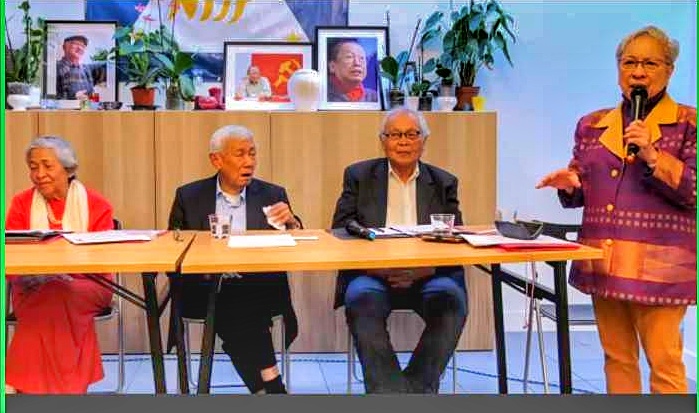CPP launches ‘3rd Rectification Movement’ on 55th founding anniversary
The 55-year old Communist Party of the Philippines (CPP) called on its members to launch a rectification movement to recover from admitted setbacks suffered in recent years.
In its traditional founding anniversary statement, the CPP said it committed “critical errors and tendencies, weaknesses and shortcomings in the ideological, political and organizational fields.”
These errors impeded the revolutionary party’s growth that also affected the further advance of the revolution it leads, it said.
“To overcome and repudiate these errors, the Central Committee calls on the entire Party to wage a rectification movement on the basis of Marxism-Leninism-Maoism and the Party’s basic principles as enunciated by Ka Joma (CPP founding chairperson Jose Maria Sison, who died December 16, 2022).
The underground organization (founded in December 26, 1968) said its third rectification movement is aimed at further strengthening itself primarily through the study and application of revolutionary theoretical theory and practice.
“There is widespread complacency in the study and application of revolutionary theory to serve as guide to practice, and timidity as well in drawing theory from practice,” it said.
These errors resulted in battlefield losses suffered by the New People’s Army (NPA), a slowdown in the recruitment of new members and in both rural and rural areas, and retardation of the revolutionary mass movement nationwide, it said.
READ THE FULL STATEMENT HERE: Rectify errors and strengthen the Party! Unite and lead the broad masses of the Filipino people in fighting the US-Marcos regime! Advance the people’s democratic revolution!
The CPP said problems have already been identified as early as 2016 when it held its 2nd National Congress but have persisted.
Study-led rectification
The CPP said its third rectification movement is made up of eight components:
- A study campaign on Marxism-Leninism-Maoism and the writings of communist leaders such as Sison;
- A full implementation of the three-level (basic, intermediate, and advanced) Party course;
- A study campaign on its constitution and program;
- A review of its first and second “Great Rectification Movements”;
- A summing up campaign to identify recent errors;
- A social investigation and class analysis campaign on all sectors;
- A criticism and self-criticism campaign; and
- Evaluation of the performances of its cadres.
The CPP’s first great rectification movement was launched when it was reestablished in 1968 after the old Partido Komunista ng Pilipinas died, while its second was launched in the early 1990s against renegade elements in various levels of its leadership.
Sources said the CPP’s earlier rectification movements were labeled “great” as it spelled the very life and death of the Party.
The underground organization’s new campaign is simply called “rectification movement.”
Strengthening
In its statement, the CPP also called on its members to continue in leading antifascist, anti-imperialist and anti-feudal struggles of the Filipino people against United States of America imperialism and the Ferdinand Marcos Jr. regime.
It also ordered its members to strengthen the NPA, rebuild the guerrilla army’s mass bases and help it recover from losses.
The Party ordered the strengthening of “revolutionary mass movements” in the countryside, cities and abroad as well.
On the National Democratic Front of the Philippines’ announced dialogues with the Government of the Republic of the Philippines for the possible resumption of formal peace negotiations, the CPP cautioned its members against Malacanan’s “framework of capitulation.”
“Push for the recognition of all previous agreements including the The Hague Joint Declaration, the Joint Agreement on Safety and Immunity Guarantees and the Comprehensive Agreement on Respect for Human Rights and International Humanitarian Law,” it added. # (Raymund B. Villanueva)

